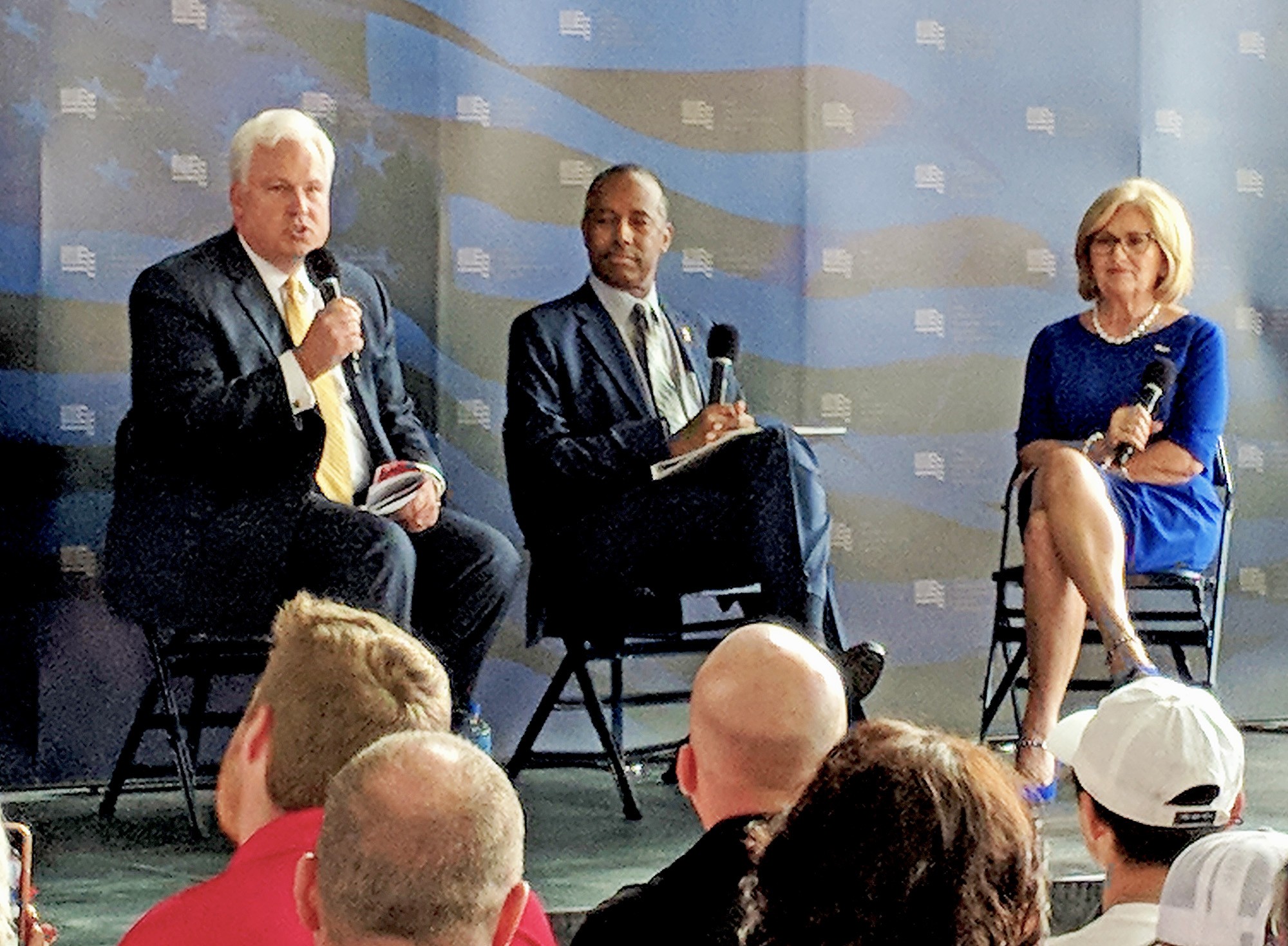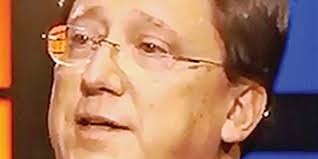 JB
JB
Gubernatorial candidate Lee works the room at Arlington’s Legacy Grill.
Is Bill Lee the new frontrunner among Tennessee’s Republican gubernatorial candidates? A recent poll says that he is, and the Williamson County businessman is now promoting that assumption on a last, pre-primary tour of the state at “100 town halls” (two of them in Shelby County on Thursday, a week before final voting on August 2nd).
Given the lingering consensus that, Democratic blue wave or no blue wave, Republicans are still the majority party in Tennessee, does the prospect that — with less than a week to go — Lee has taken over the GOP lead from the duo long at the top, Diane Black and Randy Boyd, mean that he is the state’s likely new governor?
“Maybe” is the right answer to all those questions. The poll reflecting a sudden come-from-behind lunge from Lee is by JMC Analytics and Polling, a Louisiana firm that is new to the headlines in Tennessee. So, make allowance for a degree of skepticism. It is certainly true, however, from an aggregate of various other polls over the last several months, that Lee had been maintaining a reasonably close third-place position behind Black and Boyd and was theoretically within striking distance of the Black and Boyd, should either or both of them falter.
And it is widely believed that both Black and Boyd, whose campaigns had largely become mere mechanisms for attacking each other, had indeed faltered, especially since their attacks had become progressively meaner-spirited and less connected to reality — accusing each other of being swamp creatures secretly disloyal to President Trump, as well as mad taxers intent upon robbing Tennesseans blind while gaming the financial system to enrich themselves. At no time has there been a reasoned dialogue between the two contrasting Black’s hard-shell Trump-style conservatism with the progressive governmental ideas of Boyd, an entrepreneur and former idea man for current Governor Bill Haslam who prefers now to be called “Conservative Randy Boyd,” as if that were the name on his birth certificate.
Meanwhile, Lee — a multi-millionaire like his two main rivals — has been steadily touring the state in the supportive company of his wife, Maria, stressing his religious faith and his rebound from previous family tragedies that included the death of his first wife from a horseback fall. Looking like a casually composed latter-day Marlboro Man, Lee has eschewed desperate attacks upon his opponents in favor of promises to help build a ‘better life” for all Tennesseans. Steering clear of ideology as such, and lacking a political record of any sort, he styles himself as a “conservative” and an outsider.
His current pre-election tour of Tennessee, in the same 14-year-old RV he has been using for the past year or so, made two stops in Shelby County on Thursday — one at noon at the Kooky Canuck eatery downtown, another at mid-afternoon at The Legacy Grill in Arlington, he greeted supporters, schmoozed with diners, and in general acted like a low-key Man of the Hour.
The restaurant at Arlington was filled with people, who were first treated to a stock campaign video, which recapped moments from the life and times of Lee, who was seen describing his first wife’s fatal horse-riding accident in a subdued but straightforward voice.
“Over time, we healed, we grew, we started laughing again,” Lee said on the video, explaining that he had made it his mission to “ work to change others, to make life better for other people,” not just the “1,200 hard-working pipe-fitters, electricians, plumbers of the Lee Company,” but others, including the inner-city child he mentored and the “guy from prison” he helped make a transition back to society at large.
“I started to think, What if I could do that for everyone in Tennessee? I believe I can. I’m sure going to try.
A local pastor then introduced the flesh-and-blood Lee to the crowd as “a man’s man, “farmer, husband, father, grandfather … not a career politician — in fact, he’s never run for office before — a passionate lover and follower of Jesus Christ.”
Lee came up to the front, dressed in casual shirt and chinos, suggesting that people were looking for a “conservative man of faith” and offering that as a description of himself. Hailing some Memphis-area cousins that were in the crowd, Lee cited the “transformational” nature of his family tragedy and in short order was joined at the front of the room by Maria, “God’s gift to me.”
He promised to take better care of the state’s teachers. “We test too much, and we may be testing for the wrong things.” He spoke of his wish to reform criminal justice and reduce “the revolving door” of recidivism, lamented that 15 Tennessee counties, all rural, were officially designated as in poverty, and got an extended round of applause when he rounded on the “dishonest, deceptive attack ads” that, he implied, his major GOP opponents were committed to.
“It’s everything that’s wrong with politics,” he said. “There’s a lot more truth you can find in the person behind those ads than in the person in those ads.”
There was more in that vein, and a nod to his independence and the fact that he was “not beholden to anybody,” donors, lobbyists, or legislators. He likened his “outsider” status to that of President Trump. “That’s why he’s been so effective.”
After his remarks, he and his wife greeted an impressive number of well-wishers who approached them.
He was asked if really had taken the lead. “We certainly know there’s a surge, and the momentum is there. I don’t rely on polls, but I do rely on the momentum and the electricity I see. In today’s world, people want a conservative and an outsider, and that’s me.”
Asked to define what he meant by the term “conservative,” he said it denotes a “playbook for the fundamental approach to governing, that limited government and small government is better, that fiscal governmency includes not allowing government to grow beyond what it should, and understanding there are conservative social values like being 100 percent pro-life.”
Some might think of all that as boilerplate, but Lee makes such statements with a seeming frankness and a confident if modest attitude. He is not one for hard and fast policy points, but in a contest where image counts for much, he certainly looks the part, and, after several months of trailing frontrunners Black and Boyd for first-place honors in the Republican gubernatorial primary, he may indeed be peaking at the right time.

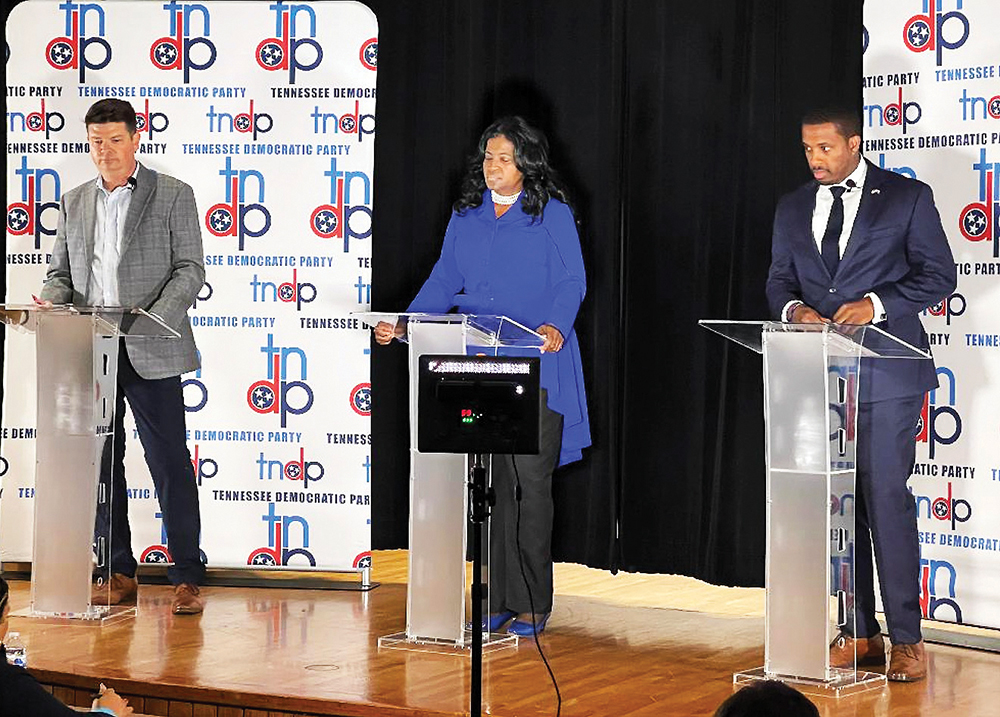
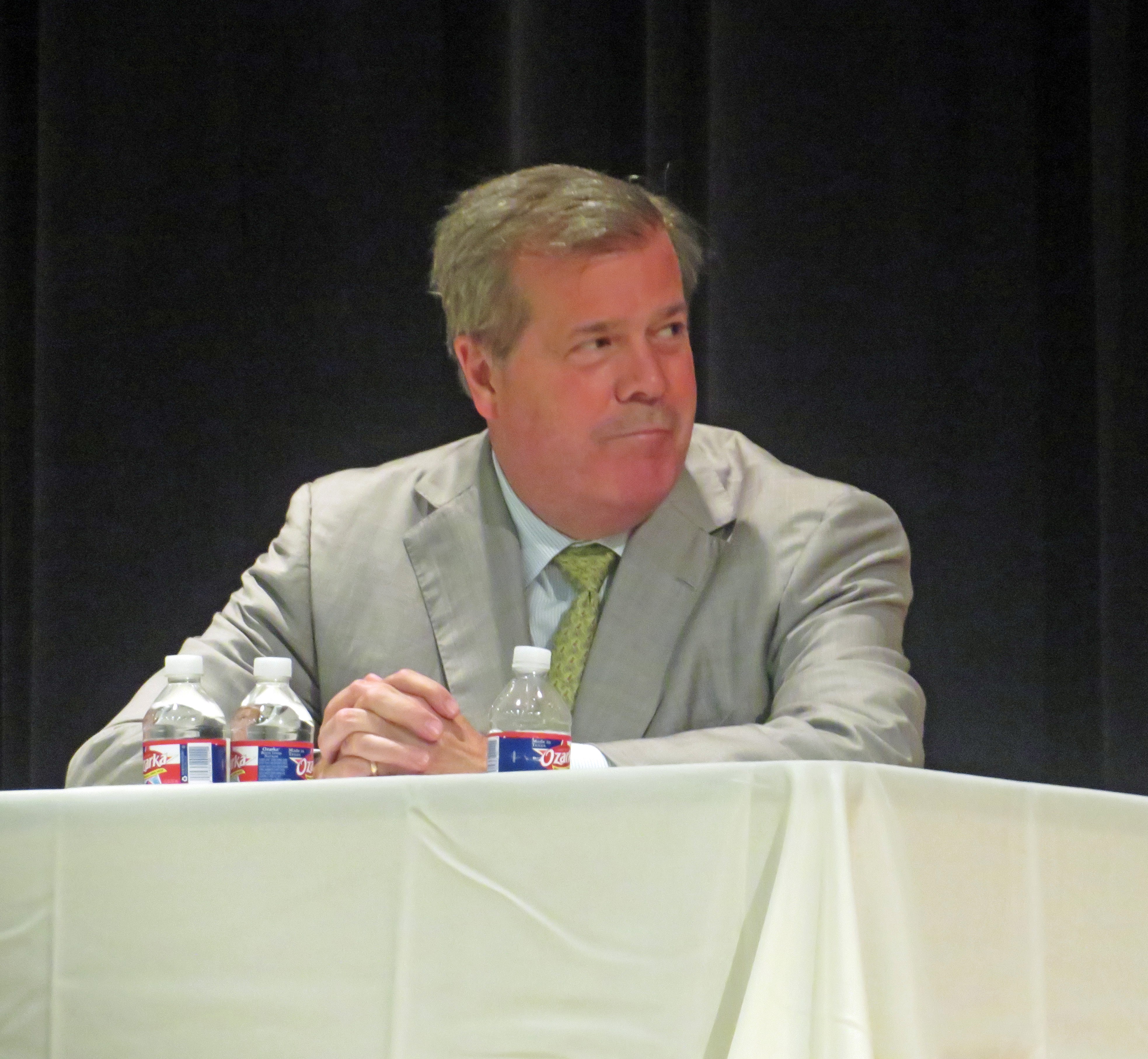 JB
JB 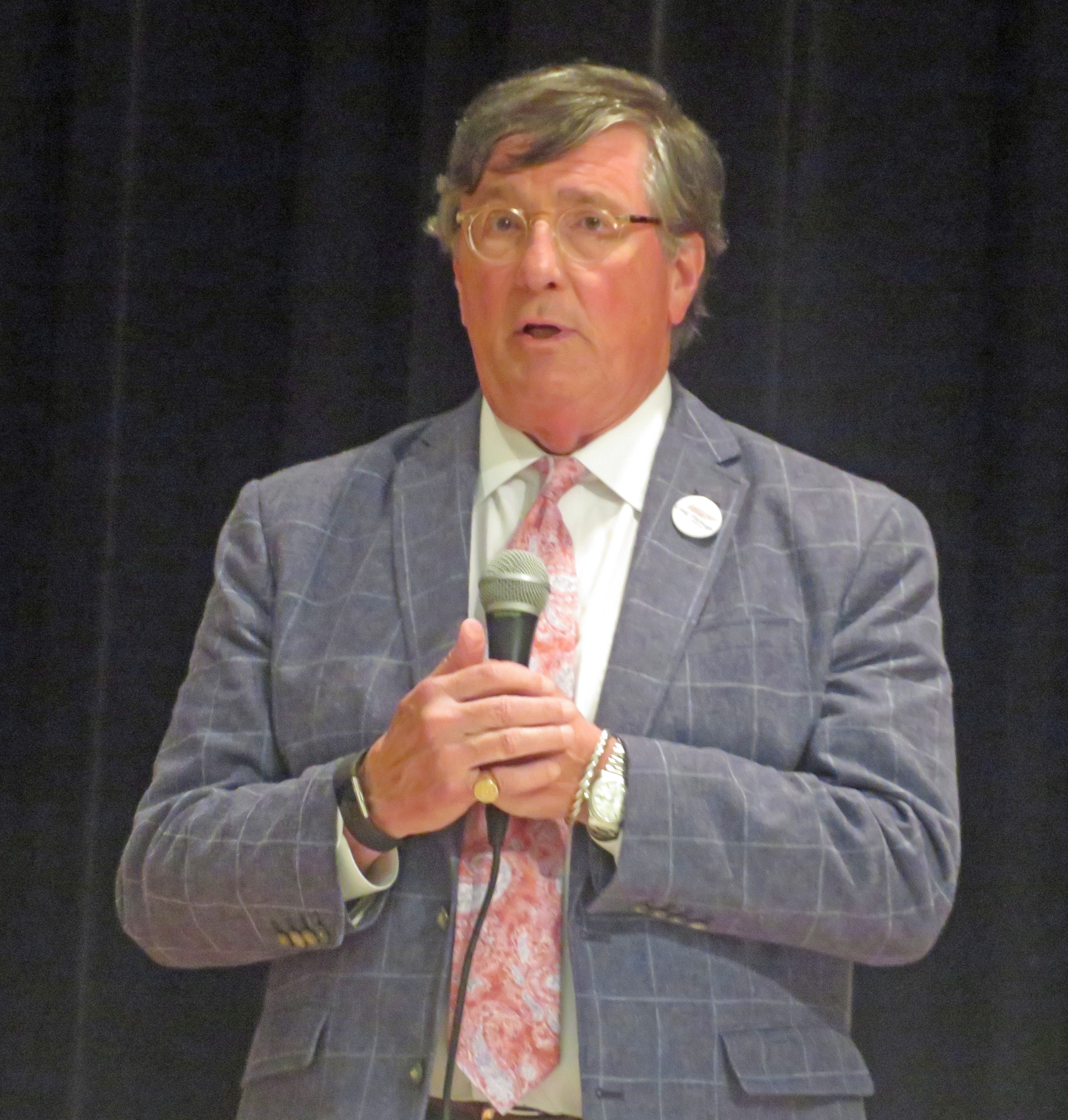 JB
JB  JB
JB 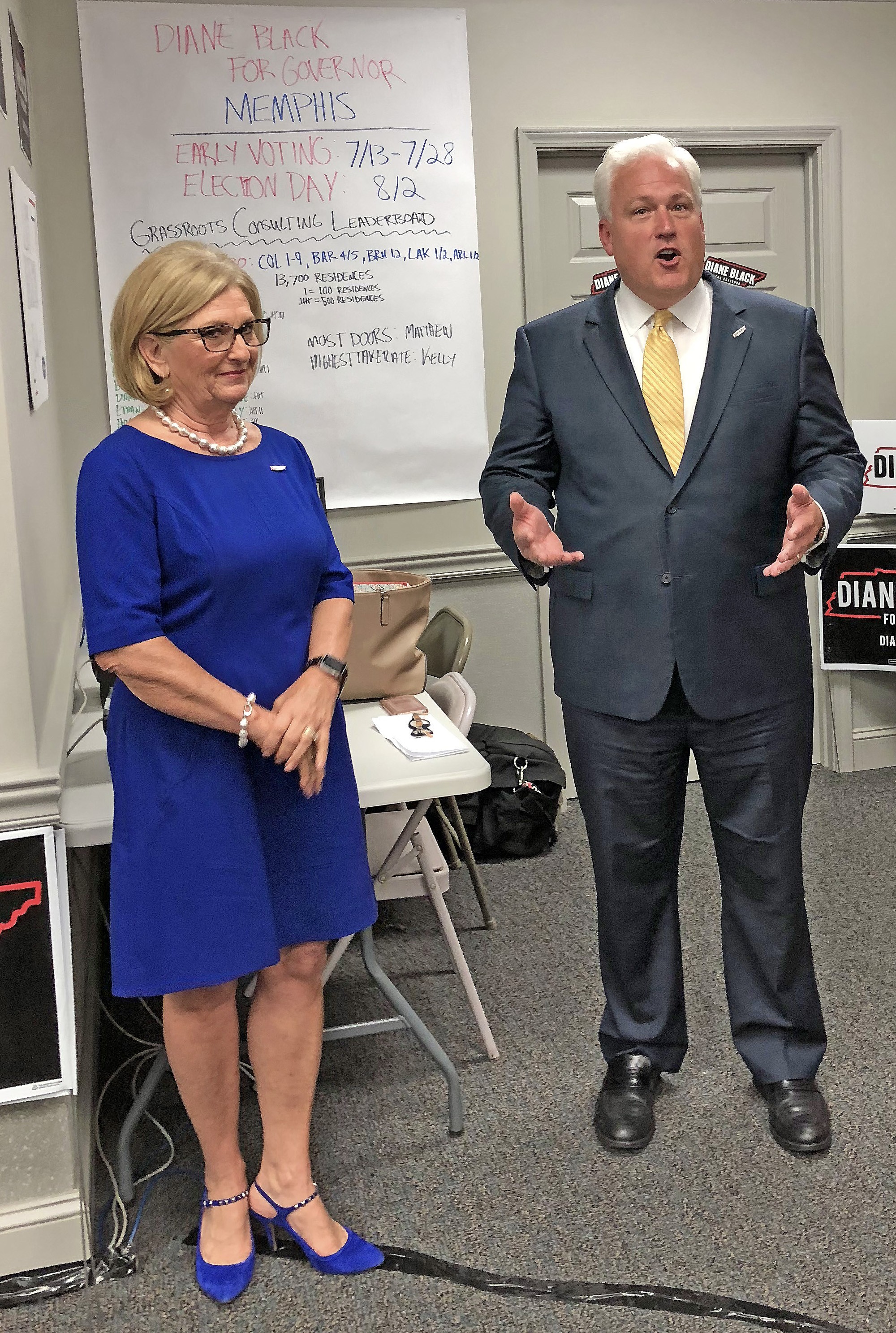 JB
JB 